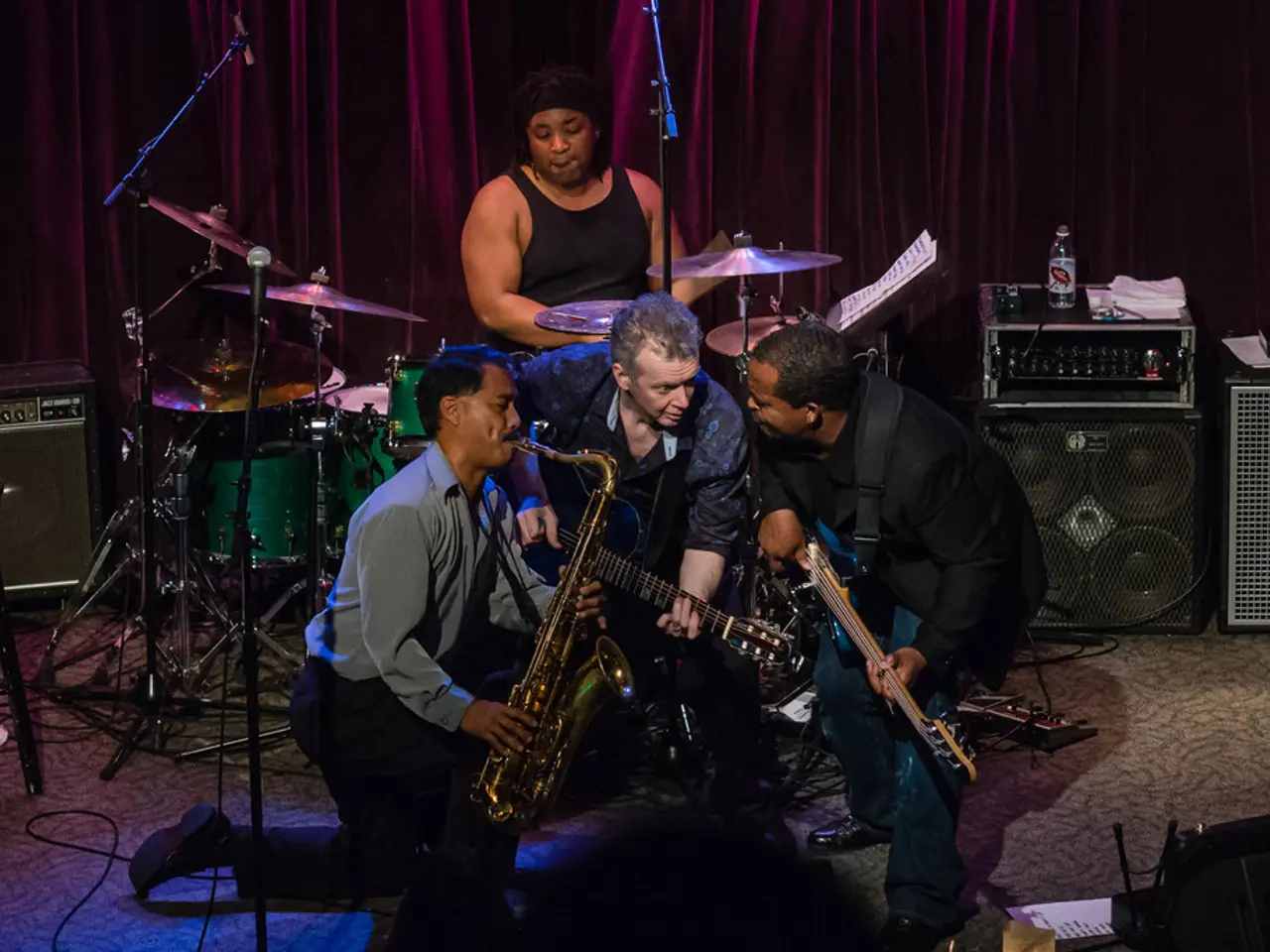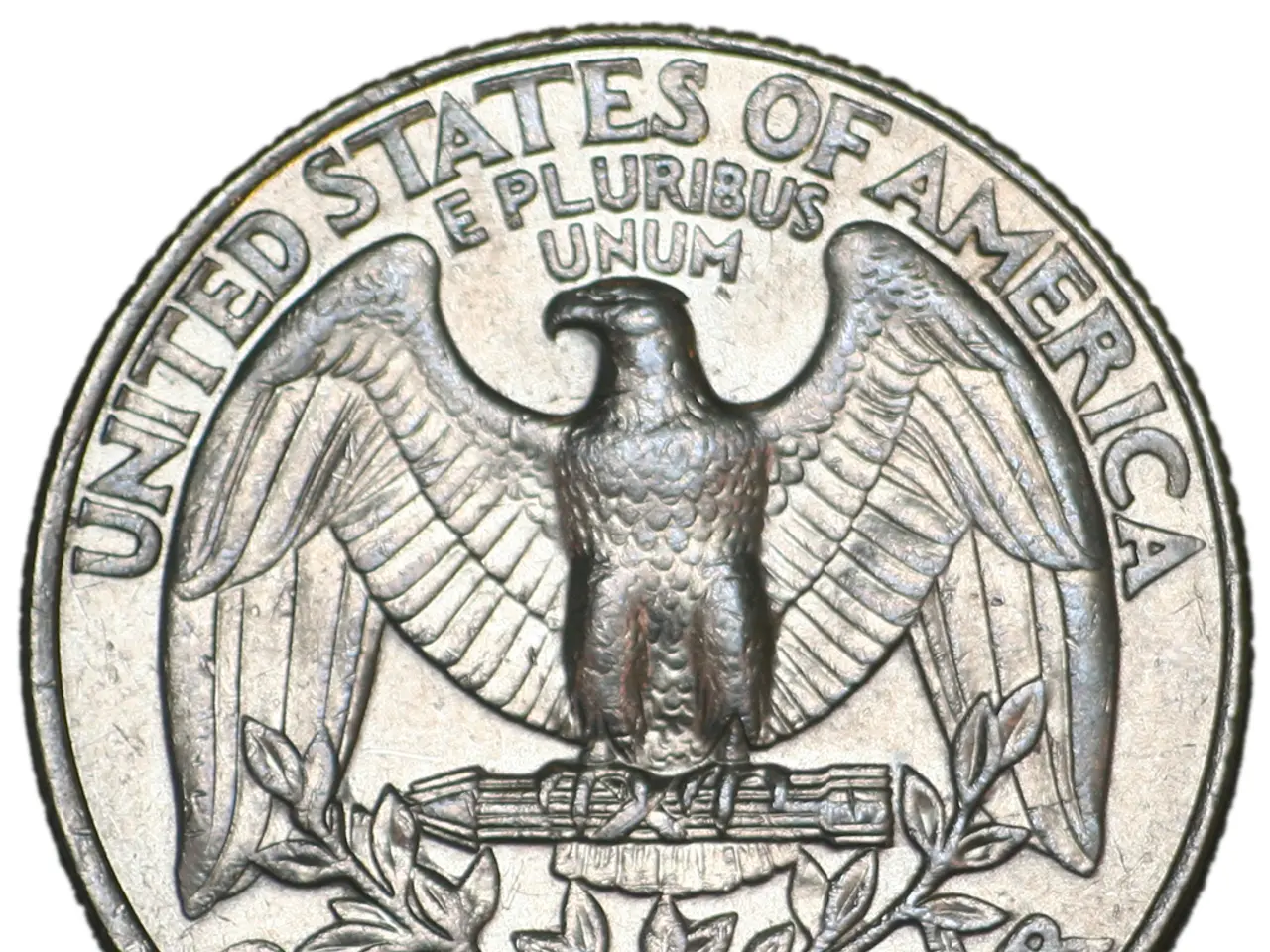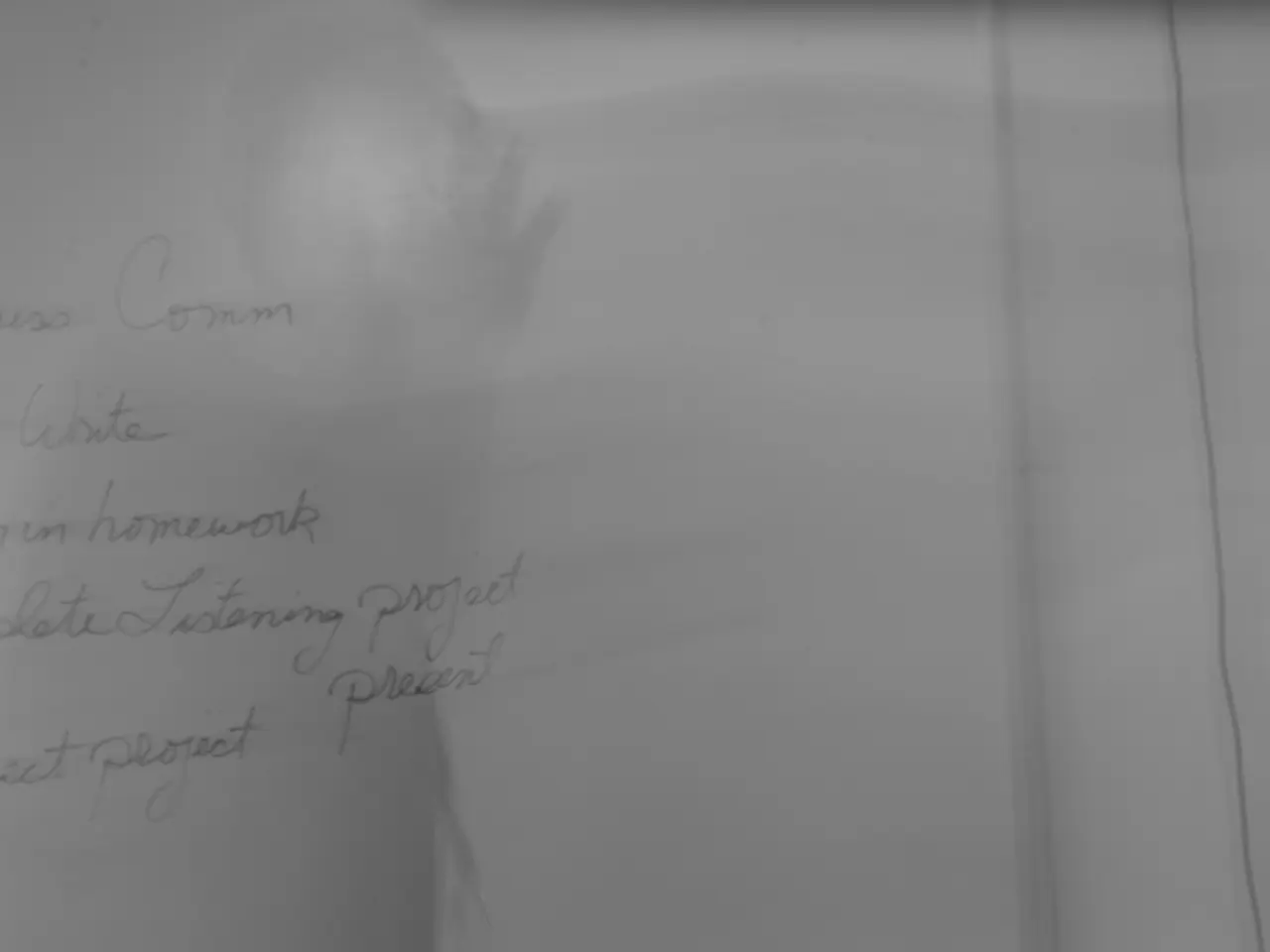Artificial intelligence heralds a new phase in the music industry evolution
In the ever-evolving world of music, artificial intelligence (AI) is making waves, with bands like The Velvet Sundown gaining massive popularity on Spotify, reaching over a million monthly listeners. This AI-created band, whose entire output—including songs, band member images, and social media—is crafted by artificial intelligence, is just one example of the growing trend of AI-generated music [1][2][3].
This development, however, raises complex issues around royalties and monetization. Since AI creates the content, traditional royalty frameworks tied to human artists become challenged. Furthermore, some AI music presence appears linked to artificial promotion tactics, such as the possible use of bot accounts to inflate streaming numbers, which complicates fair revenue distribution [3].
As AI's impact on the music industry grows, concerns about authenticity and the roles of human musicians are at the forefront. Oscar-winning artist and Berklee College of Music professor George Howard warns that AI could lead to the "eradication of the chance of sustainability for the vast majority of artists" [1][2][3]. Music producer, composer, and performer Leo Sidran shares similar sentiments, predicting a future where a lot of music will be released that is unclear who made it or how it was made [1][2][3].
Despite these concerns, AI is also seen as a potential catalyst for broader democratization of music creation, potentially increasing musical diversity as more people can produce music [4]. However, this also introduces risks to established musicians regarding competition and copyright, as AI’s ability to replicate styles and produce vast amounts of content could disrupt traditional career paths and value models.
The debate continues around how platforms, labels, and legal systems will adapt to AI music's rise, particularly concerning attribution and royalty payments where "artists" may be algorithms rather than humans. Notably, no major streaming services, except France's Deezer, clearly label tracks that come entirely from AI [3].
Producer and composer Yung Spielburg believes musicians will win out over AI with "active" listeners but will be under pressure when it comes to background music. AI-generated soundtracks have become tempting, cost-saving options in movies, television shows, ads, shops, elevators, and other venues [3]. Other AI music projects like "Aventhis" and "The Devil Inside" also have significant streaming numbers [3].
In conclusion, AI-generated bands like The Velvet Sundown exemplify both the creative possibilities and the challenges posed to the music industry's royalty systems, authenticity concerns, and future roles for human musicians [1][2][3][4]. AI is a unique challenge compared to other historical technological innovations, warning signs of a significant shift in the music industry landscape.
References: [1] The Verge. (2021). The AI-generated band that's reaching millions on Spotify. https://www.theverge.com/2021/3/17/22330027/velvet-sundown-ai-generated-band-spotify-streaming-music-industry
[2] NPR. (2021). The rise of AI-generated music raises questions about royalties and authenticity. https://www.npr.org/2021/03/17/980154908/the-rise-of-ai-generated-music-raises-questions-about-royalties-and-authenticity
[3] Forbes. (2021). The Impact Of AI On The Music Industry. https://www.forbes.com/sites/forbestechcouncil/2021/04/19/the-impact-of-ai-on-the-music-industry/?sh=4b315779518c
[4] Music Business Worldwide. (2021). The rise of AI in music: Opportunities and threats. https://www.musicbusinessworldwide.com/the-rise-of-ai-in-music-opportunities-and-threats/
- As AI-generated music becomes more prominent, questions about copyright and fair revenue distribution for these "artists" arise, given that AI creates the content and traditional royalty frameworks are typically tied to human artists.
- The growing presence of AI-generated music in the entertainment industry, such as with The Velvet Sundown, could potentially democratize music creation and increase musical diversity, but it also presents risks to established musicians regarding competition and copyright, as AI's ability to replicate styles and produce vast amounts of content could disrupt traditional career paths and value models.




